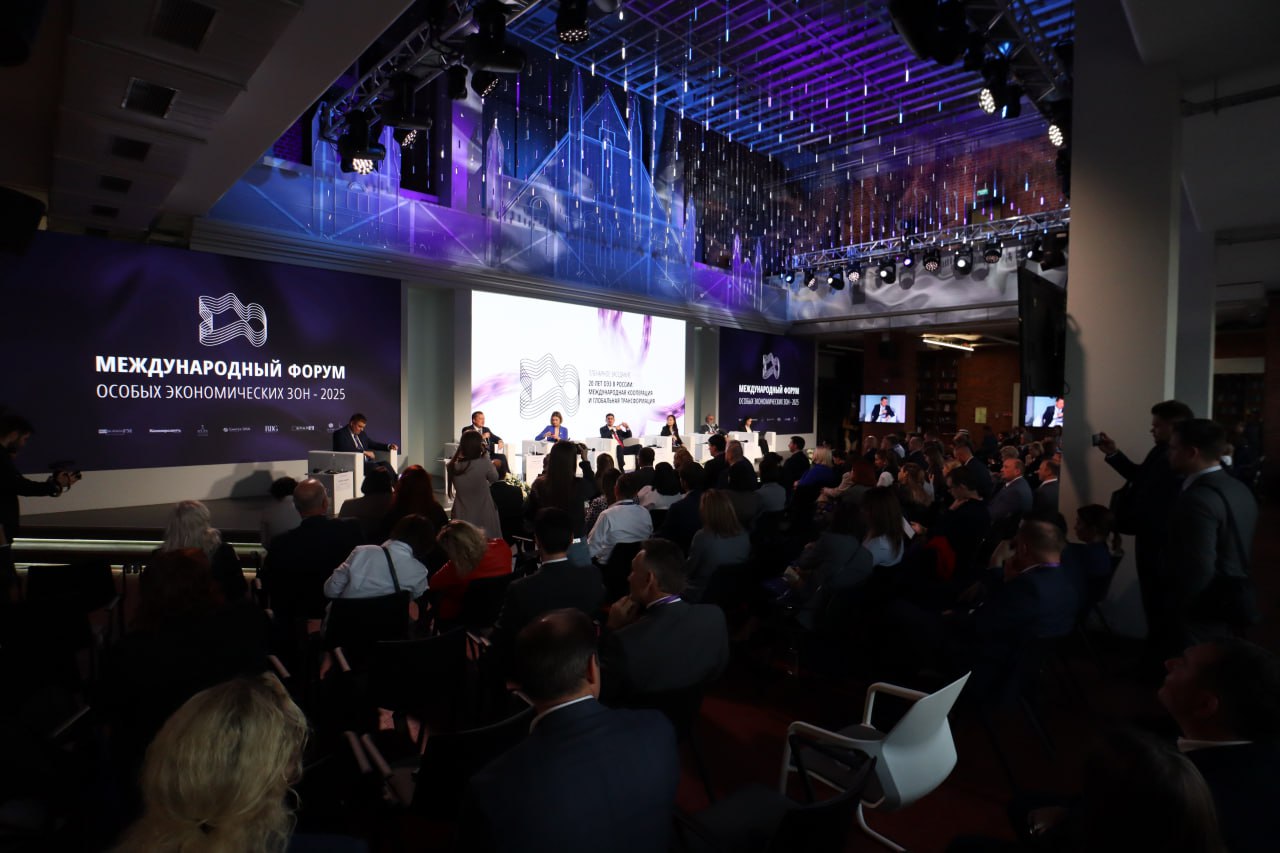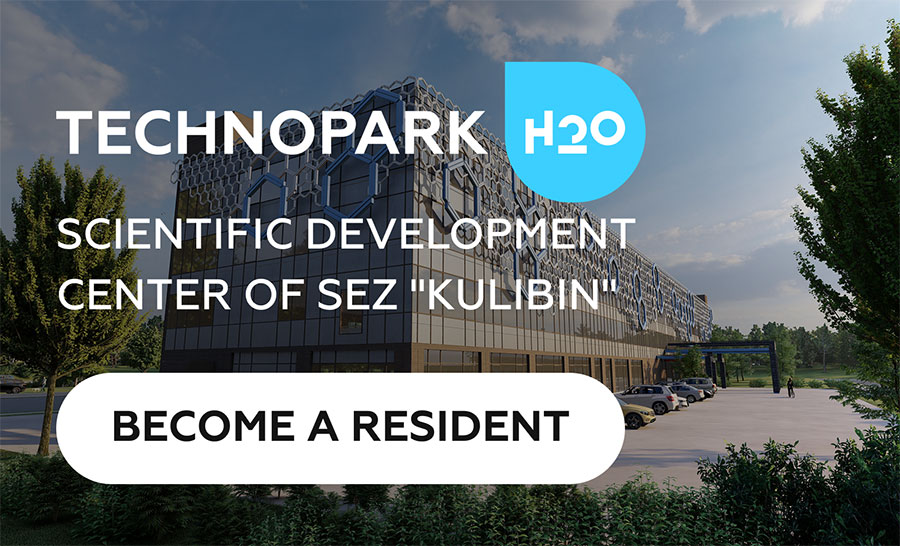Events and news
News

International Forum of Special Economic Zones 2025 attracted over 1,300 participants
More than 1,300 people attended the International Forum of Special Economic Zones 2025 held in Nizhny Novgorod. Approximately 600 representatives fr om Russia's special economic zones, federal and regional authorities, as well as business communities across different regions of Russia and over ten countries worldwide took part in the forum. Additionally, around 700 individuals joined online to follow the event live.
Throughout the day, participants engaged in four panel sessions covering topics such as regulatory frameworks for preferential territories and their optimization, business models and innovation infrastructure within SEZs, low-carbon development of industrial sites, and international cooperation through special economic zones.
During the forum, Deputy Minister of Economic Development of Russia, Svyatoslav Sorokin, announced upcoming changes to the legal framework. These amendments will allow SEZ areas to expand based on requests from major investors while introducing more flexible investment rules for residents.
"We aim to make regulations both predictable and flexible," noted Svyatoslav Sorokin. "For large investors, it is crucial that a site be immediately accessible, whereas management companies need an infrastructure system without excessive bureaucracy. The new norms take into account these dual requirements."
At the plenary session, speakers discussed the development prospects of the SEZ institution, its potential improvements, and integration goals for global economic participation. Among those participating were Svyatoslav Sorokin, deputy director of the Secretariat of the BRICS Cooperation Center Fan Yuzhin, Andrey Sanosyan, Deputy Governor of Nizhny Novgorod Region, Fareed Ahmed Sheikh, technical director of SEZ "Sindh" Management Company (Pakistan), State Duma member Maria Butina, and Asiyat Bagatyrova, CEO of ANO "Public Capital".
Andrey Sanosyan emphasized that SEZs are not only about tax incentives and ready-made infrastructure but also offer client-oriented teams willing to assist investors whenever needed. He highlighted two critical factors currently driving SEZ growth: digital services and production automation. “The first point ensures convenience for businesses and quick issue resolution, while the second provides an optimal solution to address labor shortages,” he stated.
Maria Butina underscored during her speech at the plenary session that SEZs present new opportunities for international business relations. She mentioned that utilizing SEZ capabilities for customs simplification is gaining momentum.
Fan Yujun, deputy director of the Secretariat of the Chinese Cooperation Centre for BRICS SEZs, elaborated on BRICS collaboration possibilities. She stressed the importance of digital solutions for streamlining investor procedures and positively assessed Russia’s implementation of the single-window platform ("Single Window for Investor Support").
Fareed Ahmed Sheikh, Director of the Managing Company of Pakistan's SEZ "Sindh", shared insights into his country's national SEZ system formation stages and expressed interest in further collaborating with Russia.
Mikhail Labudin, head of the Association of Clusters, Technoparks, and SEZs of Russia, pointed out that over two decades, the mechanism of special economic zones has proven itself as one of the most effective tools for attracting investments and developing territories.
"Russia is becoming part of global cooperation in this area, and international partners' interest continues to grow," Mikhail Labudin added.
An exhibition showcasing ten Russian SEZs, including the stand of Nizhny Novgorod SEZ "Kulibin," along with a single-window zone wh ere attendees could learn about investment project support processes in the region, was open throughout the day.
Additionally, fifteen cooperation agreements between development agencies, SEZs, and public organizations – including foreign entities – were signed during the forum.
Organizers of the forum included the Ministry of Economic Development of Russia, the Association of Clusters, Technoparks, and SEZs of Russia, the Government of Nizhny Novgorod Region, and the Development Corporation of the Nizhny Novgorod Region.
Partners supporting the forum were "Instrument" group of companies, "Sintez Oka" group of companies, "Spar Middle Volga" LLC. Media partners included Radio Holding "Vyberi Radio", "Kommersant Privolzhie", and magazine "Russian Business Guide".









